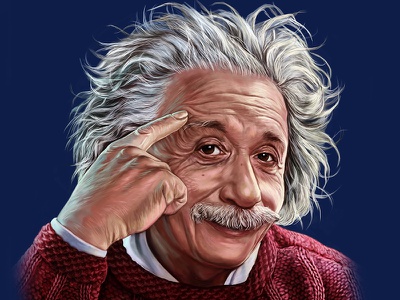Is there more to time than we perceive when we look at the clock? Yes. The answer will be ‘No’, if we concentrate exclusively on the clock time. The clock time as a machine was invented by Peter Henlein, to “measure cycles to mark changes”, as Fiocco would later say.
Whenever time is regarded as an illusion, man sees it as a thing made up in the mind and not outside it. On the other hand, time is said to be real if it is proven to be anything that exists independent of our thoughts.
At this point, discerning the time of the mind and that of the world outside it, makes the concept of time a great puzzlement to resolve. Physicists say one thing about time while philosophers say another. This wouldn’t have been much of a problem except for the fact that philosophical thoughts on this concept have not been unanimous.
Consequently, I will walk you through some of the plausible premises on the topic of time being either real or unreal and how I think my conclusion is one to largely consider. We will do all this by first examining the nature of time.
What is the nature of time and does it really exist, or is it an illusion created by human perception?
“Time was invented by clock companies to sell more clocks,” Karl Marx had said in his time. But my question is has time not been an idea known to man long before the invention of the clock? It absolutely is.
Since the inception of the existence of man, there has been time. The time before man and other humanoids, and the time he came around. Talk of all the time that has gone to his evolution, etc. All of this shows how time determines the point at which changes happen; how progression is done.
After all, without the invention of clock time (to help all measure the metaphysical time consistently), there would be no idea of however long the [approximately] seven million years of the existence of man is.
Time metaphysically exists — at least, man not only perceives but also sees it evident in changes that occur at a measurable interval. Knowing how long is short or too long by nature will be an inconsistent idea for man without a clock, making time both mind-dependent and mind independent.
To try to approach the nature of time by considering its definition by several philosophers and physicists will cause us to encounter more problems in understanding the topic, as these researchers haven’t made it a point to agree with one another on what time is. And ideally, until this concept is harmoniously understood by all, what is being talked about will remain widely vague and leave us in the grey area.
Something would be amiss here, nonetheless, if no definition of time is agreed on. For the purpose of this research, time will be seen as “An instance or occurrence ¹. An experience ².” [Wikitionary]
The moment, however abstract and nebulous, at which a thing occurs is time. It could be later, now, or then. What matters is that something occurs at a point.
Does time really exist?
Now that we have a mutual understanding of what time is, let us examine what different scholars have been saying on whether or not time exists.
To scientists, time is a quantity, but it appears to be quality to most philosophers. If both fields know this about time, why is there confusion on whether it exists? The likes of Mctaggart and Albert Einstein would take the credit for some of the earliest profound theories on time as a mere illusion.
Albert Einstein on Time

Albert, owing to his theory of relativity, was of the opinion that time doesn’t exist because it is simply invented in the mind of men. With his theory, we were made to realise that everyone has the ability to determine what he wants the time to say. For instance, the wrist watches we carry around are things we can control, therefore making time slightly different with each individual. Without any further ado, this means man determines time. There’s more to this theory.
Read Also: Are We real?
Albert’s theory coupled with the necessity of time in telling the speed of light (and all that) in physics make scientists come to a conclusion that time is merely a quantity. It can be measured.
McTaggart on Time

In McTaggart’s The Unreality of Time, whether time is not an illusion is a thing we can understand by experimenting the concept with series. He brought up these series, namely: A Series, B Series, and C Series. A Series discusses the quality of time, proposing that every point will be in the future then draw new to the present, and go further into the past.
B Series appears to be dependent on A Series. It says an event happens later than, simultaneous with, or earlier than another. Events in this series are in a fixed order and rather statistic; the observer is what moves. Going further, McTaggart thought this is what happens when a child reads fictitious works and attributes a point (on B Series) when he thought it happened. In reality, time doesn’t change in the given work.
C Series was not highly concentrated on in his work. It shows how events are ordered.
He concluded that if the future, present, and past do not exist, then time does not exist. It means that to McTaggart, time should not exist independent of A Series. McTaggart thought time doesn’t exist either. This theory is questionable.
In the same vein, the majority of Eastern philosophers think time is an illusion because it is mind-dependent.
On the other hand, time exists. Let’s examine this other viewpoint.
To Marcello Fiocco, Power, and some other philosophers, time exists for a number of reasons they put up.
Enda Power on Time
Sean Enda Power thought time exists. In his opinion, if we cannot trust that time exists, in a general and fundamental way, our experiences will be equally untrustworthy. He arrived at this conclusion with the belief that everything we do in life do not occur all at once, they take an interval; a distance which is what time is.
To Power, temporal experiences are of two types: intentional (imaginary) and change. What we think of time is susceptible to either of these elements. When it is mind-dependent then it can be tamed as an illusion, but when it is subject to change, it is only natural and we can’t help it. Change happens over time.
Change is fundamental to time and time is fundamental to change. They work inseparably. If change really exists then so must time.
Further, Power wouldn’t agree that all experiences are perceptual. He argued that the memory, though mind-dependent, can also perceive experiences indirectly. It seems Power is saying here that the brain can be independent too.
What we should know

All things being well said, time exists. Einstein and other philosophers might have been right after all, but I believe they saw it from a different perspective. This is my deduction from other theories.
In the decryptification of the concept ‘illusion’ itself, Power described how we may simply have realised less than is true as the ‘anosognosic’ of time. We have probably not experienced the true property of time.
Without involving so much intellectual energy, we should understand that without the existence of time, day probably would not have been distinct from night, and seasons (nature) will not change.
Moreso, when we are born, we grow in a matter of McTaggart’s A Series, which makes us exhibit certain characteristics designed for certain given points — intervals that can be measured also by nature. Say for instance, “He has seen twenty summers” instead of “He is twenty-year-old.”
Additionally, time can be metaphysical. As most evident in ages past, the rise and fall of the sun and the crow of cock can be used in ascertaining the progression of events; whether or not man notices it. To whatever series this is attributed, it is crystal clear that the nexus between them (the sun & crow), which is susceptible to change, is arguably congruent.
Conclusion
Whether or not people think time exists hinges on their system of thought. To the realist, every external reality exists independent of our observation. Idealists do not buy this kind of thought. They think reality exists in the mind. And so on. I want to believe that Einstein must have been a pragmatist who thought that if time exists, it should have an absolute universal significance.
I think time is real because change, to which it is subject—and vice versa, is real. Some researchers find it hard to believe that time is not some kind of change masquerading as temporal elements. But from the words of Fiocco, we saw that time only marks the points at which changes happen.
ShareDisclaimer: Our research on whether time is real continues, and this study will be updated subsequently (if the need be). Feel free to criticise.


